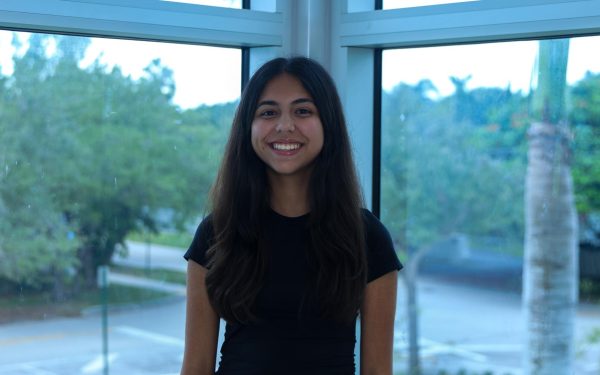As I continue through my second year of high school, a deep reflection process repeatedly takes place in my mind. Images of my future dreams swarm in the forefront of my mind, while memories of my childhood ache in my heart. Yet, a void between the two is always present, leaving me with a sense of anxiousness as I worry about what I am missing.
Have you ever felt like an outsider in your own home? I have. As I advance through my life, I cannot help but feel I am missing out on the one thing the rest of my family has not — our cultural roots. From growing up with a childhood surrounded by my Cuban grandparents as we watched telenovelas to now being known as the “gringa” of my family, it is no wonder I feel a little left out.
I recall my sister — whose first language was Spanish — consistently speaking to me in Spanish when I was very young and just learning my ABCs. However, growing up with others who primarily spoke English, or even my Hispanic friends in the same circumstance as me, my Spanish fluency vanished bit by bit. Delighted cheers from my grandma as I politely asked for agua transformed into grunts as I responded to everything she said in English. But what could I do? I still understood what she was telling me, although I was communicating back in my now-dominant language. When I was younger, I did not notice the impact this would have on my future self, but now that I am reminiscing, I am trying everything I can to get that grin back on my grandma’s face.
Throughout my late elementary school and middle school years, my reputation for being the Spanish slacker amongst the Alvarez family only grew. Whether it be my stubbornness to avoid speaking in Spanish, merely because I knew deep down I was not as confident in my speaking skills as I thought, or my denial when family members hinted at my struggle to hold a conversation with them, I never pushed myself to improve my skills. When looking back, I believe part of this is due to the intimidation I felt when speaking to someone fluent in Spanish. As a result, I only did enough to get by in my Spanish classes throughout these years. On the other hand, my sister continued to thrive with two languages. This allowed her better communication with my older family members and forged the path for greater opportunities. Still, I silently told myself I would eventually practice and pick up where I left off. I told myself, and told myself and told myself.
This repetitive reassurance loomed in my mind as the roles suddenly reversed. My family members, who once struggled to comprehend basic English, now easily alternated between the two. They were prime examples of ‘Spanglish’ speakers. The reminder to practice my Spanish disappeared from my mental to-do list. Their dedication and hard work to learn English unintentionally took my lack of perfect Spanish out of the spotlight and back in the shadows. It was not then that I noticed the separation between me and my culture. If anything, it was then that I believed it was closer since I now could easily communicate with my loved ones. I never truly felt like something was missing then because,, in my mind, I still had a connection with my family, it just was not as strong compared to my cousins.
Nonetheless, as I sat in my AP Human Geography class in freshman year, a new sense came over me. As my teacher spoke about lost languages and how they become lost, a drive of motivation and determination came over me. As I learned about how the lack of carrying on languages throughout family descendants not only endangers a language’s longevity but can also impact familial relationships, I felt guilty for partaking in this. I felt I had a responsibility to do more to keep Spanish alive in my future. I felt that not only could I do more, but I wanted to do more. This new knowledge is what pushed me to enroll in AP Spanish Language and Culture during my sophomore year. Not only has this decision forced me to consistently continue practicing my Spanish, but it is filling my heart with something I never knew was missing — pride. When I was younger I used to shy away from practicing my Spanish, but now — even though I am still not perfect — I am actively practicing to improve my pronunciation and comprehension of the beautiful Romance language.
Furthermore, this past Thanksgiving break I had the opportunity to meet some of my family that just moved to the U.S. from Cuba. The amazing time I spent with them made me appreciative of all the opportunities I have and further encouraged my motivation to practice my Spanish. Not only does bilinguality grant me more opportunities in the future, but it also continues to fill the void that appeared with a love and connection I had never fully known. Most importantly, I am beginning to see the smile grow on my grandma’s face.



